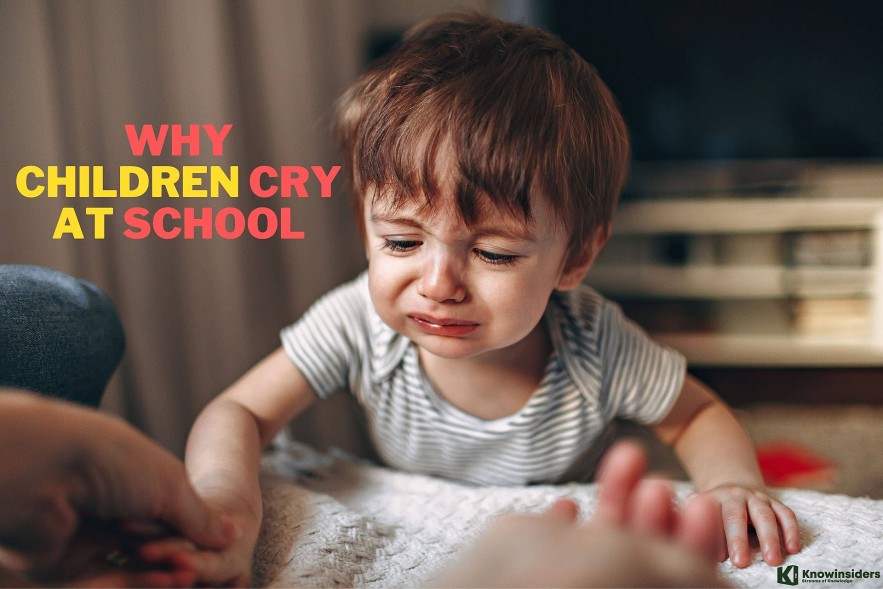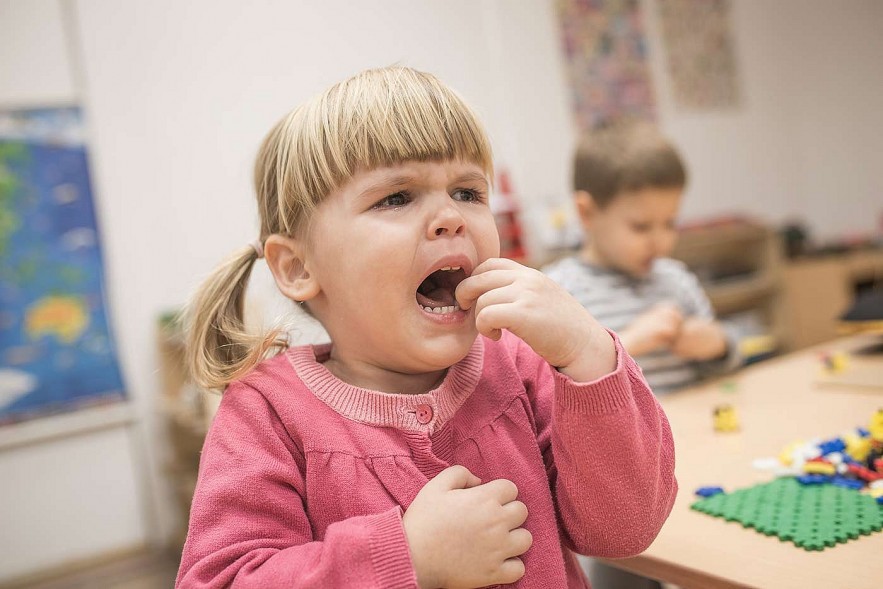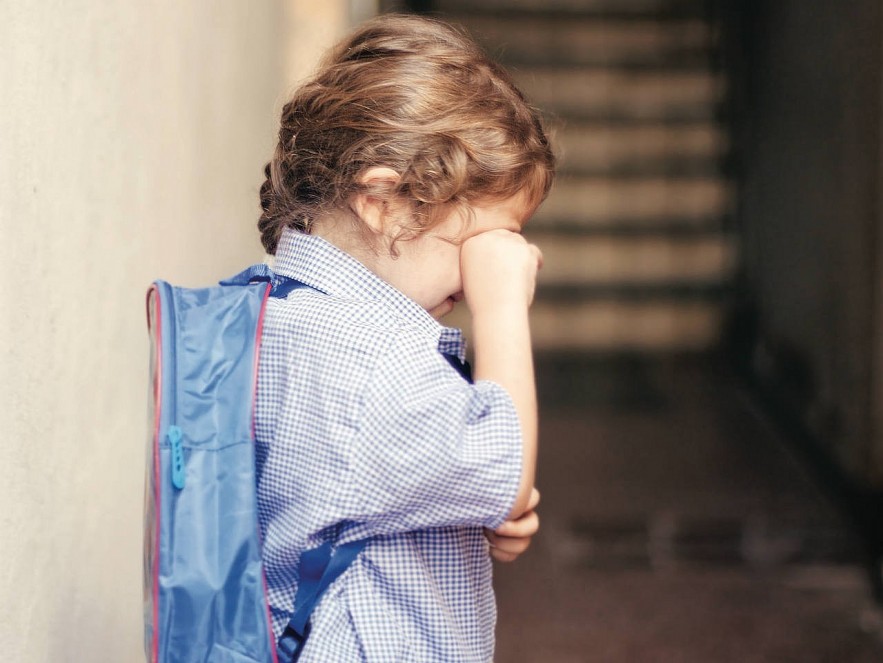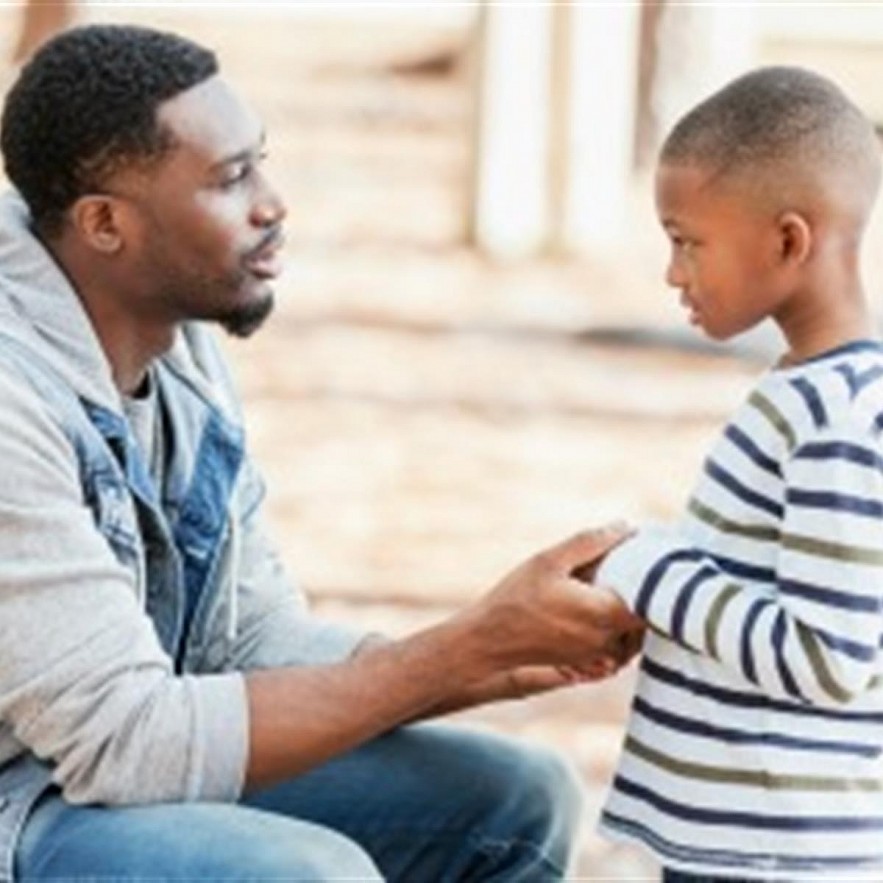Why Children Cry When Going To School, Tips To Relieve Them
 |
| Why Children Cry When Going To School, Tips To Relieve Them. Photo KnowInsiders |
| Contents |
Preschool or primary school is an exciting period in a child's life. It is completely different from what the baby has faced since birth. For parents, this is a milestone that their child is truly growing up. But for so many kids the excitement of the early days is quickly replaced by anxiety, boredom and willing to give up.
Many parents complain about the fact that their children hate going to school, especially every morning when taking their children to class, many parents have to use all means but the baby is still sobbing. So what is the cause and solution for this situation.
Why Children Cry At School
 |
| Photo sleeping should be easy |
They’re feeling pain or discomfort
Pain and discomfort that you can’t see are often reasons your kid may be crying. Stomachaches, gas, hair tourniquets, and earaches are just a few examples to consider in young ones.
If your child is older, they’ll likely tell you if something hurts. That said, it may help to take some time to run through a few questions to see if they can identify what’s wrong more specifically. This will help you rule out anything internal that you cannot see.
Discomfort can also result from being too hot or too cold. Scan what they’re wearing, compare it to the temperature, and adjust as needed.
They need attention
Sometimes kids just need our attention, and they can’t or don’t know how to ask for it. If you’ve ruled out all other causes of crying, such as hunger, fatigue, overstimulation, and frustration, it might be time to ask yourself if they just need some time with you.
Just be cautious of this reason and try to address the issue before the tears begin. If your kid uses crying as a way to gain your attention too often, it can turn into a cycle that is difficult to break.
 |
| Photo Indian parent |
They’re feeling separation anxiety
Separation anxiety can happen at any point in your child’s life, but Dr. Becky Dixon, a pediatrician at Riley Children’s Health in Indianapolis, says 12 to 20 months is a common age for it to occur.
| - Preschool children: For the first time away from family, entering a strange environment and having no relatives around, the child is afraid of everything, it's instinct. He/she can't describe it in words, so he/she cries, screams, gets angry, does all kinds of strategies just hoping parents understand and let them stay at home. - Primary school children: When children graduate from kindergarten and enter primary level, they are in the transition period and suffer from crisis of age number 6. Adults tell them learning at grade 1 is difficult. That's it, if you don't study, you'll be punished right away. In 1st grade, you have to learn math, learn to write. Many new things are reported by adults when school has not started yet, which confuses children. |
| To help decipher your child’s reason for crying, consider these age-appropriate reasons from Woods: → Toddler (1–3 years): Emotions and tantrums tend to rule at this age, and they’re likely triggered by being tired, frustrated, embarrassed, or confused. → Preschool (4–5 years): Hurt feelings or injury are often to blame. → School-age (5+ years): Physical injury or loss of something special are key triggers for crying in this age group. |
What To Do To Stop Crying And Encourage Children To Go To School
Soothing
If separation anxiety is causing tears, try the following:
→ Start with brief times away from the child.
→ Kiss, hug, and step away.
→ Come back, but only after a period of time away (after the child’s crying has subsided, and they see they will not perish without you).
→ When you return, tell them they did a great job while you were away. Reassure, give praise, and show affection.
→ Lengthen the time away as they continue to get used to you being gone.
Have an activity they love ready to work on
If you know Chris cries EVERY morning, and you also know he loves dinosaurs, maybe you could have a dinosaur puzzle on the table for him to focus on right away. Something engaging to divert their attention for even a few minutes can make all the difference in the world!
Establish a soothing goodbye ritual that includes a handshake, hug, or high five. Let your child know that once you do your special goodbye signal, you’ll head to work and they’ll head to the classroom to learn and play. Then remind them that you’ll be back to get them before they know it!
Talking
 |
| Photo healthy children |
- When talking to the child, keep your eyes on the child's and lower your body to the child's, put your hand on the child's shoulder or hold the child's hand.
- Affirm with your child: Going to school without relatives (parents, siblings) by your side all day is really boring, isn't it? (This way of saying wants to find the consent of the child, the child will see that the parents REALLY UNDERSTAND me).
- Empathize and tell your child: When mom/dad was the same age as you, I cried all the time when I went to school, I still remember... (telling funny stories about my parents' past. It's okay, kids will see they are the same as their parents).
- Specific prompts: now, ask your child: When going to school, what worries you? What makes you uncomfortable? Who makes you cry? How can I make you feel better?
When your child tells you why, say "I agree with you" (to solve problems with you) and find a solution to help.
Take a school tour
If your child is going into preschool, take them on a tour a few days beforehand, recommends Sucheta Connolly, M.D., a child psychiatrist and director of the Pediatric Stress and Anxiety Disorders Clinic at the University of Illinois in Chicago, which treats children as young as 2. Talk openly and excitedly to your child about their upcoming routine. If they tend to have trouble with new social situations, arrange for playdates with some new classmates before school begins.
Also consider role-playing at home. Many children are cognitively ready for school but struggle to assert themselves socially. Use puppets, dolls, or stuffed animals to act out social situations that make them anxious, such as meeting the teacher for the first time.
When the first day comes, it's sometimes best to tell your child that you will stay for a few minutes to help them feel settled. Give them a little memento to put in their pocket that reminds them of you, so they can take it out if they feel sad. If you think the problem is serious, you might speak privately with the teacher. Many children are a bit weepy at first, but most of them cheer up in a few minutes.
You can also reward children for taking positive steps toward independence. For example, put a sticker on your kid's chart every day they attend school without tears or clinging, and when they earn a certain number of stickers, take them on a special outing.
| Remember: - Extremely br PATIENT with your child. - Listen to your child and show your sincere willing solve their problems. - Absolutely do not judge, criticize and put your thoughts into your child's thoughts. And remember, parents were once children. |
When to Seek Professional HelpIf you’ve tried everything in your toolbox, and you’re still struggling with the crying, consider making an appointment to see the doctor. Some red flags that it’s time to call a pediatrician, according to Woods, include:
If your child seems to cry more than you think is normal or cannot be consoled, talk to your pediatrician. In some cases, an underlying medical issue, like an undiagnosed ear infection that’s causing pain, can be the cause of a child's constant tears. |
When a child goes to preschool or primary school in the first few months, parents need to be very patient to accompany them. No child is obedient when suddenly having to leave the family, get acquainted with strangers. But children learn very quickly, parents should try and grow up with children!
 Children’s Day (June 1st): 15 Best Gifts For Your Kids Children’s Day (June 1st): 15 Best Gifts For Your Kids International Children’s Day is dedicated to improving children’s welfare, raising awareness about their rights, and promoting unity and togetherness amongst children all over the ... |
 Top 11 Easiest Countries To Adopt A Child Top 11 Easiest Countries To Adopt A Child Adopting a child is a life-changing step. If you are thinking about adopting a child, this list of top ... |
 Babies Born in 2023: How Fortunate Will Be - According to Feng Shui Forecast Babies Born in 2023: How Fortunate Will Be - According to Feng Shui Forecast Is giving birth in 2023 good? What age parents should have children in 2023? On what day and month is a baby born in the ... |
























